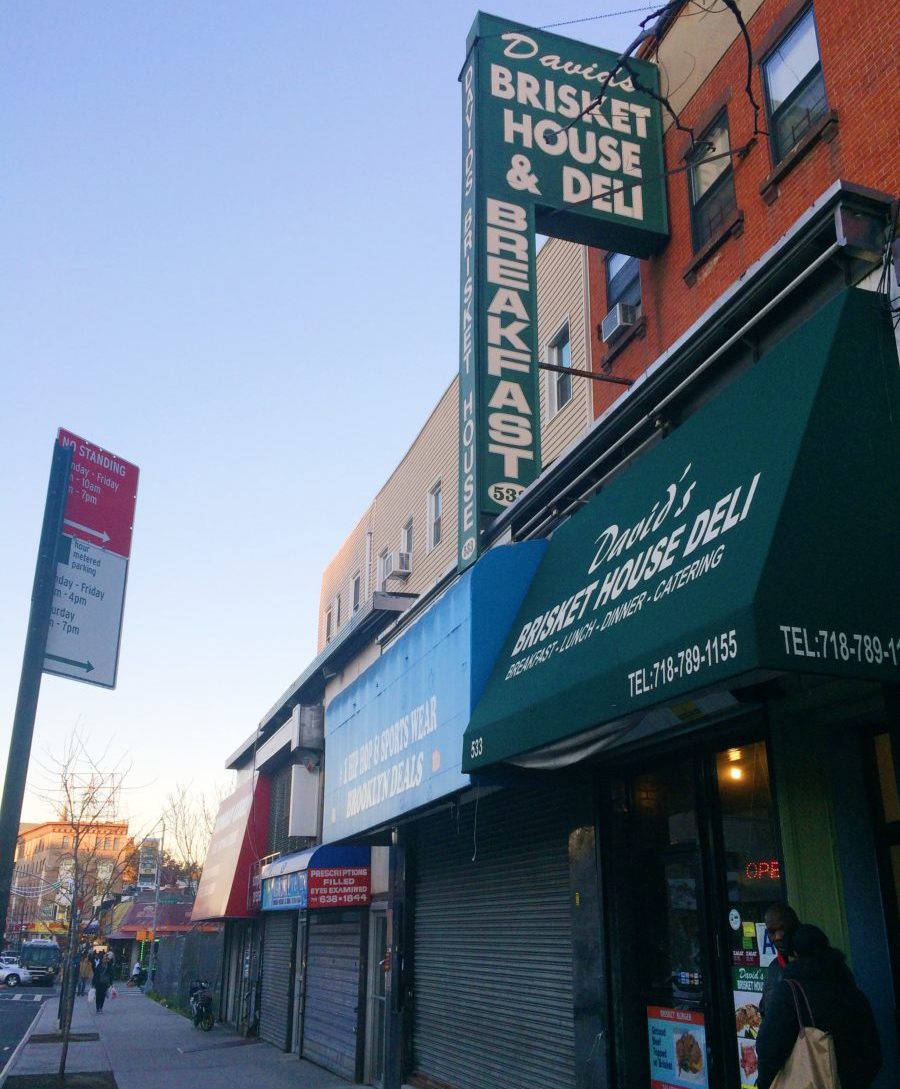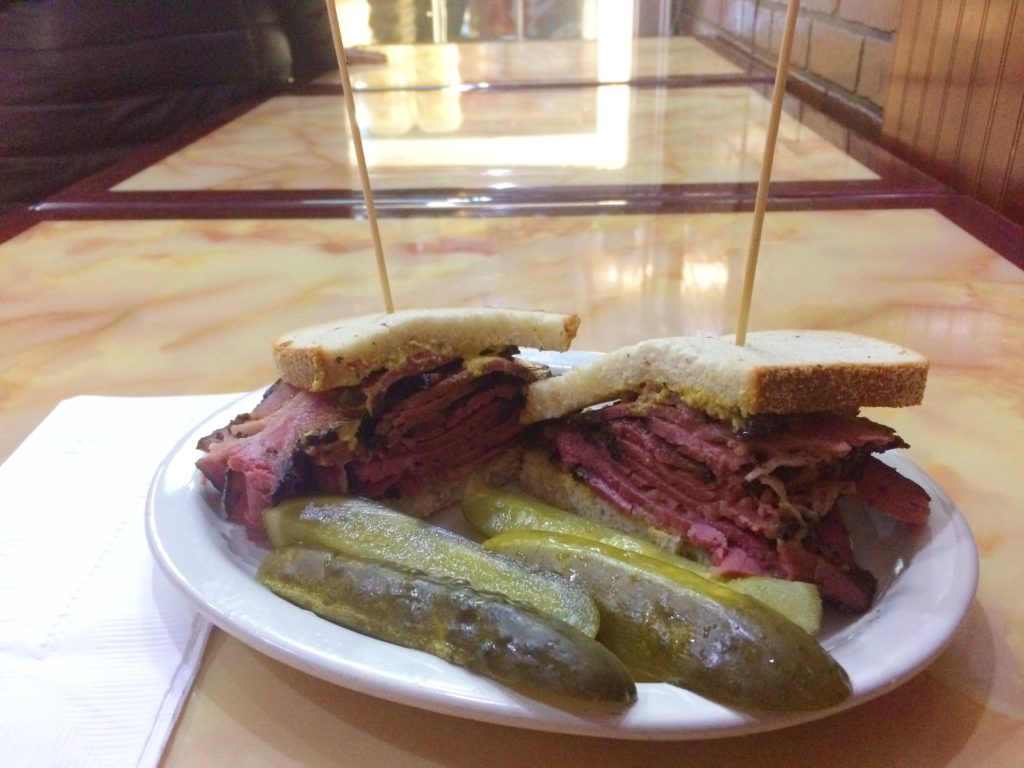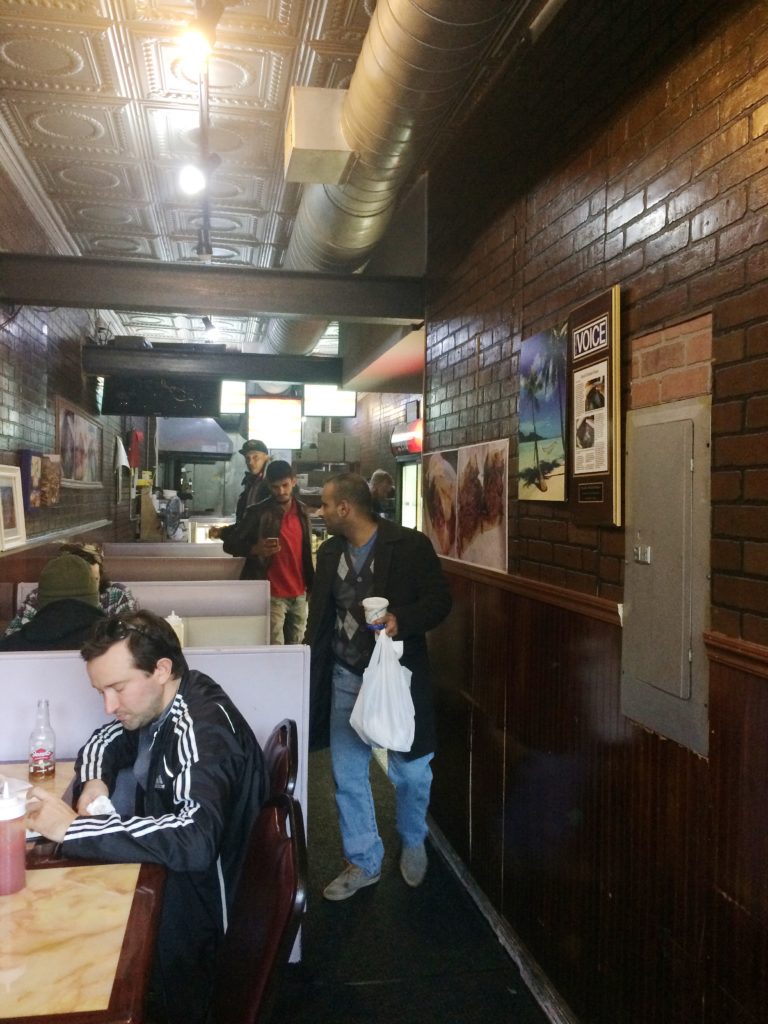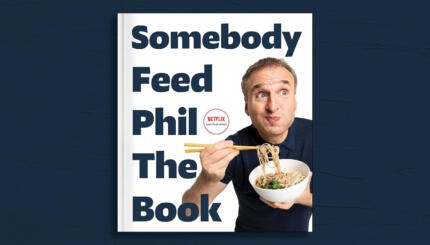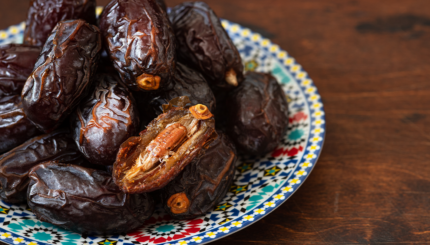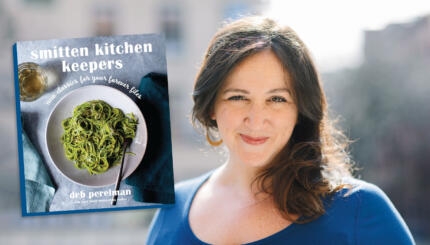Walking down Nostrand Avenue, in the Bed-Stuy neighborhood of Brooklyn, as if out of nowhere, you’ll see a sign announcing ‘David’s Brisket House & Deli,’ defying the landscape of beauty supply stores, Trinidadian doubles shops, and dollar stores surrounding it. You’d walk right by this narrow establishment if you didn’t notice the multi-level sign above. Like most things in New York City, there’s more to this place than meets the eye.
I made my way past a few booths up to the counter and pondered aloud what to order. “At first I was all about the pastrami, but now it’s the corned beef,” said owner and manager, Riyadh. He promptly gave me a sample to see what I thought. “It’s boiled and salted…healthier than the pastrami, but it’s just as tender as the brisket,” he explained. He was right–it was thinly sliced, juicy, and full of flavor. Ordering felt like stepping back into an era where this was less of an “experience” and more of an everyday exchange.
In addition to the three cuts of meat for which they’re famous, you can round out your meal with Dr. Brown’s Cel-Ray soda, home-made coleslaw, and a sour deli pickle.
The Nosher celebrates the traditions and recipes that have brought Jews together for centuries. Donate today to keep The Nosher's stories and recipes accessible to all.
What sets this hidden gem of a deli apart from the others, I soon learned, is that it’s owned and operated by Yemeni Muslims.
“We’ve been in Bed-Stuy for more than 50 years,” said Riyadh, though the business has changed hands a few times. “The first owner, David, was a Russian Jew who opened the business in Bed-Stuy in the 1960s,” he continued. Back then, the neighborhood was home to African-Americans, working-class European-Americans of various backgrounds and Jews. He eventually sold the deli to two Yemeni friends in the 1980s–one of whom was Jewish, and one of whom was Muslim. Together, they owned and operated the business, serving David’s brisket to the changing demographics.
In the 1980s, when the Yemeni Jewish owner died, the Muslim Yemeni family took over. Ever since, Riyadh and his partners have guarded David’s Eastern-European kosher-style recipes closely. Riyadh and his partners serve to a diverse crowd that is more concerned with delicious cuts of brisket and pastrami than whether or not they’re kosher or halal. When I asked if he would ever consider adding Yemeni food to the menu, he said no, but suggested several places for where I could find it.
Riyadh and his team keeps things as close to the original as possible–serving mostly brisket, pastrami, and corned beef, and a few breakfast sandwiches–and people are noticing. The Village Voice recently awarded them with the Best Beef Brisket in Brooklyn, “best in the city, maybe best in the world.”
At David’s Brisket House, where Yemeni Muslims serve brisket to a diverse, Brooklyn crowd, you leave with a full belly and the pleasure of knowing that anything is possible in New York.
kosher
Pronounced: KOH-sher, Origin: Hebrew, adhering to kashrut, the traditional Jewish dietary laws.

Help us keep Jewish knowledge accessible to millions of people around the world.
Your donation to My Jewish Learning fuels endless journeys of Jewish discovery. With your help, My Jewish Learning can continue to provide nonstop opportunities for learning, connection and growth.
